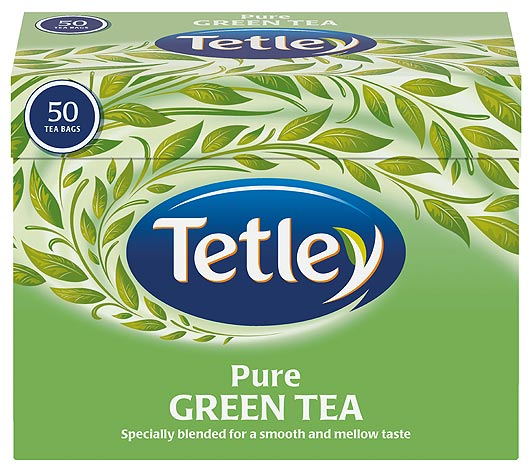 Top Class Action Lawsuits
Top Class Action Lawsuits
Abercrummy & Fitch…This week’s wage and hour class action involves Abercrombie & Fitch—no stranger to employment lawsuits—over allegations of violations of California labor law and state and federal overtime law. The lawsuit claims the clothing retailer misclassifies its sales and stockroom associates as exempt from overtime wages even though they regularly work more than 40 hours in a week and are often “on call” during other shifts. You’d think they’d know the drill on this stuff by now…
The lawsuit alleges hourly workers at the company’s Abercrombie & Fitch and Hollister stores often work overtime hours and are scheduled for certain “call-in” shifts, during which the employees are required to call the store an hour before a shift begins to see if the stores need them to work. The employees must keep the call-in hours open but are not compensated if the stores don’t need them to report for work.
Filed by lead plaintiff Samantha Jones, the complaint states she was employed by the national clothing retailer from December 2005 through to January 2014 in its namesake Hollister stores. She was employed as a brand representative, model, a term used to refer to hourly associates on the sales floor and impact team member, an hourly associate working in the back of the store and eventually was promoted to a manager position.
Jones alleges that she was classified as a non-exempt employee during the entire period of her employment with the defendant that she was paid on an hourly basis and entitled to overtime wage. However, the defendant has a “uniform policy and practice” of failing to compensate employees for all hours worked.
Jones further claims that Abercrombie failed to keep accurate records and pay Jones and the putative class members for their hours worked, including failing to record on-call hours and the overtime hours generated by the on-call shifts.
Specifically, the complaint states: “Defendants, as a matter of corporate policy, practice and procedure, intentionally, knowingly and systematically failed to compensate plaintiff and the class members for all hours worked (for on-call time), and undercompensated them for overtime worked that should have been paid at overtime rates had the on-call time been paid for.”
The lawsuit seeks to represent a nationwide Fair Labor Standards Act class, a California class and a California subclass, composed of individuals who were classified as nonexempt, paid on an hourly basis and scheduled for call-in shifts.
The suit is Jones v. Abercrombie & Fitch Trading Company, case number 3:14-cv-04631, in the U.S. District Court for the Northern District of California.
Top Settlements
Verizon to Pay Unpaid Overtime—to the tune of $15 million, according to a settlement agreement reached this week. The agreement will end a wage and hour class action lawsuit brought against Verizon California Inc alleging violations of California labor law. Specifically, the plaintiffs claimed Verizon issued inaccurate wage statements that omitted crucial information making it impossible for the workers to determine whether they had been paid properly.
In addition to approving the Verizon settlement motion, Judge Mitchell L. Beckloff certified the proposed settlement class, which consists of employees paid biweekly in California who received itemized income statements from Verizon between April 1, 2009 and May 2011.
Filed by former Verizon field technician Hector Banda in April 2010, the lawsuit alleges Verizon violated the California Labor Code and the code’s Private Attorney General Act by not listing the pay period beginning date, applicable hourly rates and number of hours worked at each rate on the wage statements it issued to employees. A similar complaint was filed by Scott Cerkoney three months after the first lawsuit and the cases were subsequently consolidated in 2011.
According to the complaint, Verizon allegedly issued some 223,000 wage statements to its 6,800 employees during the class period.
The cases are Hector Banda et al. v. Verizon California Inc. et al., case number BC434587, and Scott Cerkoney et al. v. Verizon California Inc. et al., case number BC442358, both in the Superior Court of the State of California, County of Los Angeles.
And CVS Caremark, too! Yet another California labor law and unpaid overtime class action settlement to report this week—this one a final $2.8 million settlement for CVS Caremark pharmacists, who alleged violations of California labor law. A California judge approved the settlement of class claims that the pharmacy chain improperly forced hundreds of Southern California pharmacists to work seven days straight without overtime. This is the first settlement of six such lawsuits pending against the retailer alleging unpaid overtime.
The CVS Caremark settlement will provide damages to 627 CVS pharmacists who are or were employed in CVS’ “Region 72,” the Southern California area that is one of CVS’ six regions in that state. The settlement represents roughly 70 percent of plaintiffs’ estimation of CVS’ total potential liability.
Named plaintiff Connie Meneses filed suit in August 2012, alleging CVS was improperly forcing its pharmacists to work seven days in a row without paying overtime for the seventh, in violation of a state law that mandates pharmacists be given a day off after six days of work.
The case is Connie Meneses et al. v. CVS Pharmacy Inc. et al., case number BC489739, in the Superior Court of the State of California, County of Los Angeles.
Hokee Dokee—Time to adjourn for the week. Have a fab weekend—See you at the bar!



